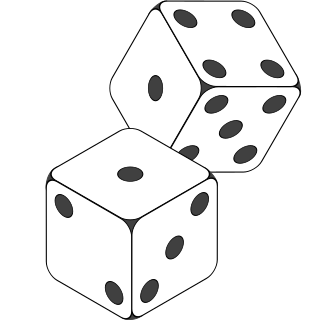Computer music is the application of computing technology in music composition, to help human composers create new music or to have computers independently create music, such as with algorithmic composition programs. It includes the theory and application of new and existing computer software technologies and basic aspects of music, such as sound synthesis, digital signal processing, sound design, sonic diffusion, acoustics, electrical engineering, and psychoacoustics. The field of computer music can trace its roots back to the origins of electronic music, and the first experiments and innovations with electronic instruments at the turn of the 20th century.

Generative art is post-conceptual art that has been created with the use of an autonomous system. An autonomous system in this context is generally one that is non-human and can independently determine features of an artwork that would otherwise require decisions made directly by the artist. In some cases the human creator may claim that the generative system represents their own artistic idea, and in others that the system takes on the role of the creator.
Contemporary classical music is Western art music composed close to the present day. At the beginning of the 21st century, it commonly referred to the post-1945 modern forms of post-tonal music after the death of Anton Webern, and included serial music, electronic music, experimental music, and minimalist music. Newer forms of music include spectral music, and post-minimalism.
Larry Don Austin was an American composer noted for his electronic and computer music works. He was a co-founder and editor of the avant-garde music periodical Source: Music of the Avant Garde. Austin gained additional international recognition when he realized a completion of Charles Ives's Universe Symphony. Austin served as the president of the International Computer Music Association (ICMA) from 1990 to 1994 and served on the board of directors of the ICMA from 1984 to 1988 and from 1990 to 1998.
Algorithmic composition is the technique of using algorithms to create music.
Generative music is a term popularized by Brian Eno to describe music that is ever-different and changing, and that is created by a system.

A Musikalisches Würfelspiel was a system for using dice to randomly generate music from precomposed options. These games were quite popular throughout Western Europe in the 18th century. Several different games were devised, some that did not require dice, but merely choosing a random number.

Eduardo Reck Miranda is a Brazilian composer of chamber and electroacoustic pieces but is most notable in the United Kingdom for his scientific research into computer music, particularly in the field of human-machine interfaces where brain waves will replace keyboards and voice commands to permit the disabled to express themselves musically.

Algorithmic art or algorithm art is art, mostly visual art, in which the design is generated by an algorithm. Algorithmic artists are sometimes called algorists.
Evolutionary music is the audio counterpart to evolutionary art, whereby algorithmic music is created using an evolutionary algorithm. The process begins with a population of individuals which by some means or other produce audio, which is either initialized randomly or based on human-generated music. Then through the repeated application of computational steps analogous to biological selection, recombination and mutation the aim is for the produced audio to become more musical. Evolutionary sound synthesis is a related technique for generating sounds or synthesizer instruments. Evolutionary music is typically generated using an interactive evolutionary algorithm where the fitness function is the user or audience, as it is difficult to capture the aesthetic qualities of music computationally. However, research into automated measures of musical quality is also active. Evolutionary computation techniques have also been applied to harmonization and accompaniment tasks. The most commonly used evolutionary computation techniques are genetic algorithms and genetic programming.
Experimental music is a general label for any music or music genre that pushes existing boundaries and genre definitions. Experimental compositional practice is defined broadly by exploratory sensibilities radically opposed to, and questioning of, institutionalized compositional, performing, and aesthetic conventions in music. Elements of experimental music include indeterminacy, in which the composer introduces the elements of chance or unpredictability with regard to either the composition or its performance. Artists may approach a hybrid of disparate styles or incorporate unorthodox and unique elements.
Rodney Waschka II is an American composer known for his algorithmic compositions and his theatrical works.

Computational creativity is a multidisciplinary endeavour that is located at the intersection of the fields of artificial intelligence, cognitive psychology, philosophy, and the arts.
Pop music automation is a field of study among musicians and computer scientists with a goal of producing successful pop music algorithmically. It is often based on the premise that pop music is especially formulaic, unchanging, and easy to compose. The idea of automating pop music composition is related to many ideas in algorithmic music, Artificial Intelligence (AI) and computational creativity.
David Evan Jones is an American pianist and composer of chamber music, opera, and computer music.
Music and artificial intelligence is the development of music software programs which use AI to generate music. As with applications in other fields, AI in music also simulates mental tasks. A prominent feature is the capability of an AI algorithm to learn based on past data, such as in computer accompaniment technology, wherein the AI is capable of listening to a human performer and performing accompaniment. Artificial intelligence also drives interactive composition technology, wherein a computer composes music in response to a live performance. There are other AI applications in music that cover not only music composition, production, and performance but also how music is marketed and consumed. Several music player programs have also been developed to use voice recognition and natural language processing technology for music voice control. Current research includes the application of AI in music composition, performance, theory and digital sound processing.
Cognitive musicology is a branch of cognitive science concerned with computationally modeling musical knowledge with the goal of understanding both music and cognition.
Emily Howell is a computer program created by David Cope, Dickerson Emeriti Professor of Music at UC Santa Cruz. Emily Howell is an interactive interface that "hears" feedback from listeners, and builds its own musical compositions from a source database, derived from a previous composing program called Experiments in Musical Intelligence (EMI). Cope attempts to “teach” the program by providing feedback so that it can cultivate its own "personal" style. The software appears to be based on latent semantic analysis.
Richard Charles Boulanger is a composer, author, and electronic musician. He is a key figure in the development of the audio programming language Csound, and is associated with computer music pioneers Max Mathews and Barry Vercoe.

François Pachet is a French scientist, composer and director of the Spotify Creator Technology Research Lab. Before joining Spotify he led Sony Computer Science Laboratory in Paris. He is one of the pioneers of computer music closely linked to artificial intelligence, especially in the field of machine improvisation and style modelling. He has been elected ECCAI Fellow in 2014.






